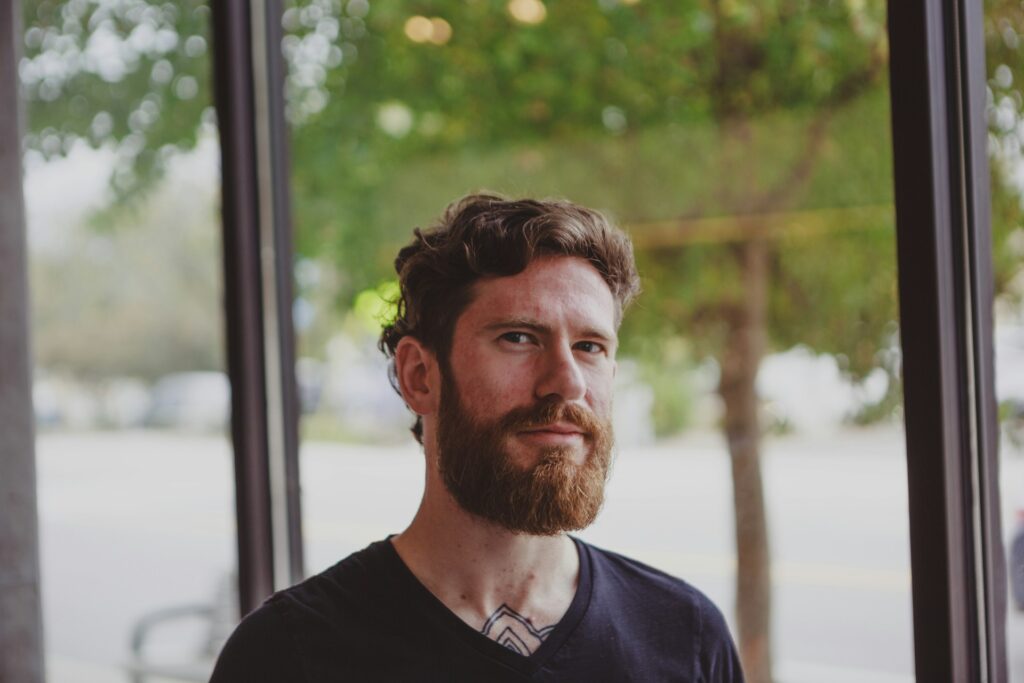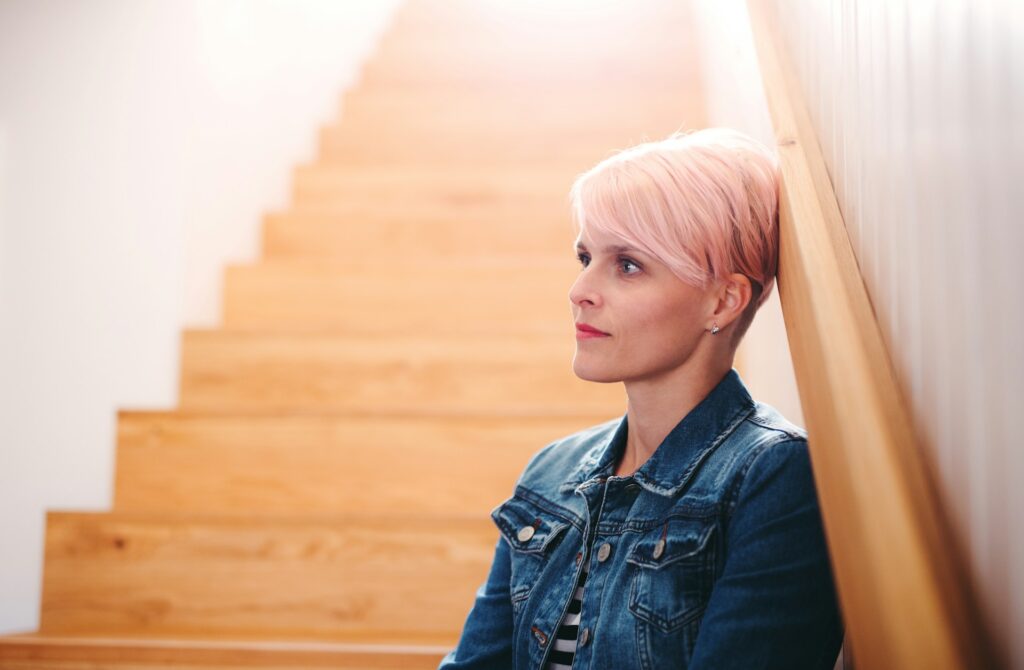Some seasons of life feel like you’re running in place while everyone else is sprinting ahead.

Even when you’re trying, even when you’re doing everything you’re “supposed” to, it can still feel like nothing’s changing. If you’re stuck in that space—tired, discouraged, and questioning if things will ever change—know this: you’re not alone, and your situation isn’t permanent. The path might be slower than you hoped, but progress is still happening underneath the surface. Here are some things to hold onto when it feels like you’re falling behind in a world that won’t slow down.
1. Everyone’s timeline is different—comparison lies.

It’s so easy to measure your life against someone else’s highlight reel, but most people aren’t showing the chaos behind the scenes. Their success might look effortless, but chances are, it took years of quiet struggle to get there. And even if it didn’t, your journey is allowed to look different.
Some people peak early; others build slowly but steadily. Neither path is better or worse—it’s just different. You’re not late to anything. You’re just on your own timeline, which still has plenty of room for growth, change, and moments that surprise you.
2. Being stuck doesn’t mean you’ve failed.

Feeling like you’re not moving forward doesn’t mean you’ve messed up. It just means you’re in a chapter where things aren’t clicking yet—and that happens to everyone, even if they don’t admit it. Life isn’t one long upward climb; it’s a weird mix of pause, pivot, and push.
This isn’t the final verdict on your potential. It’s a tough stretch, not the whole story. Give yourself credit for still showing up, even when it’s hard. That kind of quiet resilience is what actually builds a solid foundation for real progress later on.
3. Small steps still count (even when they feel pointless).

We don’t always notice progress while we’re living it. Sometimes the small stuff—sending the email, getting out of bed, showing up to work—is what keeps you in the game long enough for the next door to open. It’s not flashy, but it matters.
Big leaps are rare. Most of the time, real growth comes from stacking small efforts, even on the days you don’t feel like it. You’re building something, even if it’s slow. That’s still movement, and it deserves more credit than it usually gets.
4. You might be doing too much alone.

Trying to do everything without help can make any kind of progress feel impossible. Whether it’s pride, fear of burdening anyone, or just not knowing who to ask—doing it all solo will eventually lead to burnout. Support isn’t weakness. It’s strategy.
Ask yourself what kind of help would actually make a difference. It doesn’t have to be huge—maybe it’s a sounding board, a mentor, or someone to remind you that you’re not invisible. You don’t have to prove your worth by suffering silently.
5. Rest is productive, even if it doesn’t feel that way.

If you’re always running on fumes, your brain can’t focus, your creativity dries up, and your motivation disappears. Rest isn’t laziness; it’s what recharges you to keep going. You can’t move forward if you’re too tired to function. Give yourself permission to stop pushing when your body is clearly asking for a break. Rest doesn’t stall your life. It gives you the clarity and strength to actually live it with intention later on.
6. You’re allowed to outgrow goals that no longer fit.

Sometimes you feel stuck because you’re chasing a version of success that doesn’t reflect who you are anymore. Maybe the old goals were based on pressure, comparison, or someone else’s expectations. It’s okay to change direction. Letting go of a plan that no longer fits doesn’t mean you’re giving up—it means you’re evolving. That evolution can open doors you couldn’t even see before. Real progress often starts with asking, “Do I still want this?”
7. The world doesn’t reward burnout—it punishes it.

There’s this idea that pushing harder, working longer hours, and saying yes to everything will finally get you ahead. But most of the time, it just leads to exhaustion, mistakes, and missed opportunities for actual balance. Progress built on burnout never lasts. If you’re constantly running on empty, your growth will stall, not accelerate. Protecting your energy isn’t selfish—it’s what allows you to keep going without crashing.
8. People don’t talk enough about how long growth really takes.

Real progress is often quiet, slow, and non-linear. It doesn’t always come with a big announcement or breakthrough moment. Sometimes it’s just surviving the week, staying grounded during hard conversations, or showing up when you’d rather disappear. We romanticise the glow-up but skip over the messy, repetitive middle. Don’t mistake the lack of drama for a lack of development. You might be growing more than you realise, just without the flashy milestones.
9. You’re not broken because you’re struggling.

Struggling doesn’t mean something’s wrong with you. It means you’re a human being going through a tough time. Even the most capable, brilliant people have seasons where everything feels too heavy and progress is slow to show up. You’re allowed to not have it all together. That doesn’t erase your intelligence, your effort, or your worth. Struggle is part of the process—it’s not proof that you don’t belong in the room.
10. Progress looks different when healing is involved.

If you’re also working through trauma, grief, or burnout, your version of “getting ahead” is going to look different. And it should. Healing takes energy, and that means you may not move at the same pace as someone who’s not carrying the same emotional weight. You’re not behind—you’re balancing two journeys at once, and that’s something most people underestimate. Progress while healing is slower, sure. However, it’s also deeper, and often more lasting.
11. Your worth isn’t tied to your achievements.

This is easy to forget in a world that glorifies hustle and constant improvement. However, you’re not only valuable when you’re producing something. You’re worthy of care, respect, and rest, even when you’re standing still. If your sense of self is only built on what you can achieve, you’ll always feel like you’re not doing enough. Who you are matters more than what you do. Don’t let the pressure to succeed erase your humanity.
12. It’s okay to not have the next step figured out yet.

Feeling lost doesn’t mean you’ve failed. It just means you’re in a transitional phase, and those don’t come with neat roadmaps. You’re allowed to be unsure, to pause, to try things and change your mind. Uncertainty is uncomfortable, but it’s also fertile ground for creativity and possibility. Give yourself permission to explore without demanding immediate clarity. Sometimes the next step only becomes clear after you start walking.
13. Survival mode hides how capable you really are.

If you’ve been in survival mode for a while, it’s hard to even imagine what thriving could look like. Your capacity shrinks, your energy gets drained, and you start believing this is all life has to offer, but it’s not. You haven’t lost your potential—you’ve just been too busy surviving to access it. As safety and stability return (even slowly), you’ll start to see what you’re capable of again. Be patient with that process. It’s not about rushing. It’s about rebuilding.
14. You’ve made it through every hard day so far.

This might sound simple, but it’s worth reminding yourself: you’ve survived every day that felt impossible. Every moment you thought would break you, you’re now looking back on. That means you’re stronger than you give yourself credit for. The fact that you’re still here—still trying, still showing up—matters. Progress isn’t always about climbing. Sometimes it’s just about not quitting, even when everything in you wants to. That’s not falling behind. That’s courage in motion.


